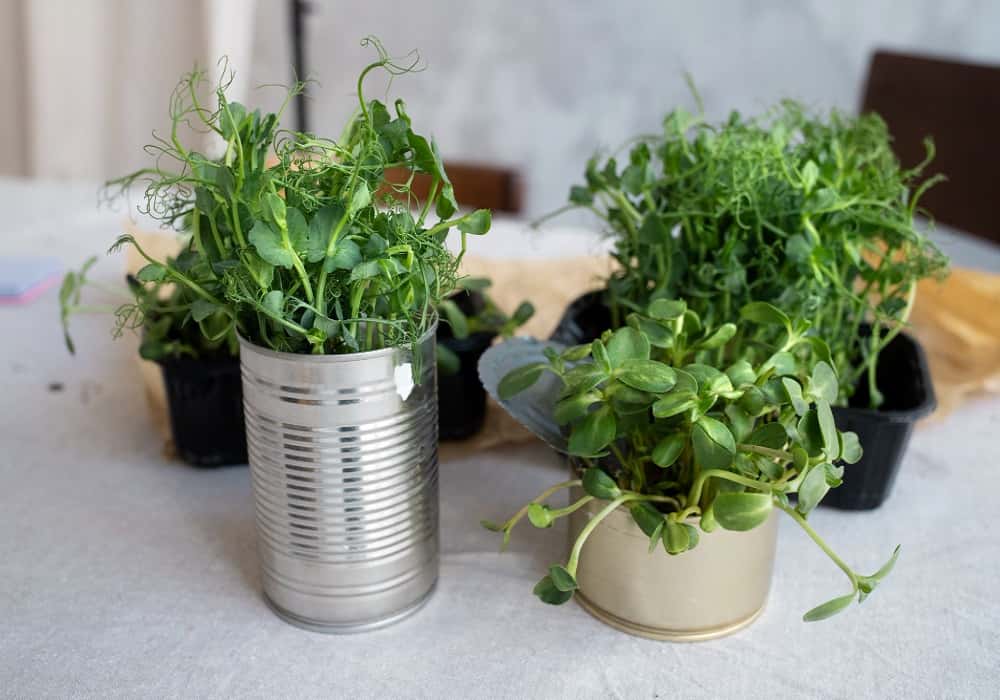Ultimate List of Vegetables and Herbs as Plants for Kitchen Garden in India
Starting a kitchen garden at home is a great way to grow fresh, organic produce and connect with nature. Kitchen gardens are becoming popular in India for their affordability and health benefits. This article lists the best plants for kitchen garden in India, focusing on ease of growth and usefulness.
Why Start a Kitchen Garden in India?
A kitchen garden lets you cultivate fresh herbs and vegetables in your backyard, balcony, or terrace. It decreases reliance on store-bought items and promotes sustainable waste management through composting. With India’s varied climate, a wide range of plants can be grown in almost every region.
Vegetables to Grow in Your Kitchen Garden
1. Tomatoes
Tomatoes are widely used in Indian cooking.
- Planting Tip: Use well-drained soil and ensure the plant receives plenty of sunlight.
- Harvest Time: 60-70 days after planting.
2. Chilies
Chilies are essential in Indian dishes, adding heat to many meals.
- Planting Tip: Ensure good drainage and moderate watering.
- Harvest Time: 2-3 months.
3. Coriander (Cilantro)
A vital herb in Indian cooking for garnishing and flavoring.
- Planting Tip: Sow seeds directly into the soil in a sunny area.
- Harvest Time: 3-4 weeks.
4. Spinach
A quick-growing, nutritious leafy vegetable.
- Planting Tip: Use nutrient-rich soil and keep it slightly moist.
- Harvest Time: 30-40 days.
5. Fenugreek (Methi)
Loved in Indian cuisine for its flavor and health benefits.
- Planting Tip: Evenly scatter seeds in a pot or garden bed.
- Harvest Time: 20-25 days.
6. Okra (Lady’s Finger)
This heat-loving vegetable thrives in India’s climate.
- Planting Tip: Plant in well-drained soil with full sun exposure.
- Harvest Time: 45-50 days.
7. Carrots
Carrots are nutritious and easy to cultivate.
- Planting Tip: Use sandy soil and thin seedlings for healthy growth.
- Harvest Time: 2-3 months.
8. Cucumbers
Ideal for refreshing summer salads.
- Planting Tip: Provide a trellis for climbing types and keep the soil moist.
- Harvest Time: 50-70 days.
9. Brinjals (Eggplants)
A mainstay in Indian cooking, brinjals are simple to grow.
- Planting Tip: Ensure they get plenty of sunlight and water regularly.
- Harvest Time: 3-4 months.
10. Peas
Peas are a winter favorite in many Indian households.
- Planting Tip: Use rich soil and provide support for climbing varieties.
- Harvest Time: 60-90 days.
Herbs to Grow in Your Kitchen Garden
1. Mint (Pudina)
Mint is a refreshing addition to chutneys and drinks.
- Planting Tip: Plant in partial sunlight; it grows quickly and spreads.
- Harvest Time: 3-4 weeks.
2. Basil (Tulsi)
Basil is known for its culinary and medicinal properties; it is considered sacred in India.
- Planting Tip: Keep it in a sunny spot with well-drained soil.
- Harvest Time: 6-8 weeks.
3. Lemongrass
Popular for its flavor in teas and soups.
- Planting Tip: Needs full sunlight and well-drained soil.
- Harvest Time: 3-4 months.
4. Curry Leaves
Aromatic leaves essential in South Indian cuisine.
- Planting Tip: Plant in a sunny area and water moderately.
- Harvest Time: Continuous growth after planting.
5. Dill (Suwa)
Dill enhances the flavor of curries and soups.
- Planting Tip: Sow seeds in well-drained soil with partial sunlight.
- Harvest Time: 40-60 days.
6. Parsley
Great for garnishing and flavoring dishes.
- Planting Tip: Requires rich, moist soil and partial sunlight.
- Harvest Time: 2-3 months.
Tips for a Flourishing Kitchen Garden
- Start Small: Begin with a few simple plants like coriander or mint.
- Sunlight is Essential: Most vegetables and herbs need 4-6 hours of sunlight each day.
- Incorporate Compost: Homemade compost enriches the soil and encourages growth.
- Consistent Watering: Keep the soil damp but avoid excessive watering.
- Pest Management: Use natural solutions such as neem oil to deter pests.
- Rotate Your Crops: Avoid depleting soil nutrients by changing plant varieties each season.
Advantages of Cultivating a Kitchen Garden
- Healthier Produce: Enjoy fresh, chemical-free vegetables and herbs.
- Cost-Effective: Helps lower grocery expenses.
- Environmentally Friendly: Reduces carbon emissions and supports sustainability.
- Stress Relief: Gardening is calming and boosts mental well-being.
Conclusion
Creating a kitchen garden is a fulfilling endeavor that enhances health, sustainability, and joy in your home. With the variety of plants for kitchen garden in India, you can easily cultivate a vibrant, productive garden suited to your cooking needs. Start modestly, care for your plants attentively, and relish the rewards of your labor!






